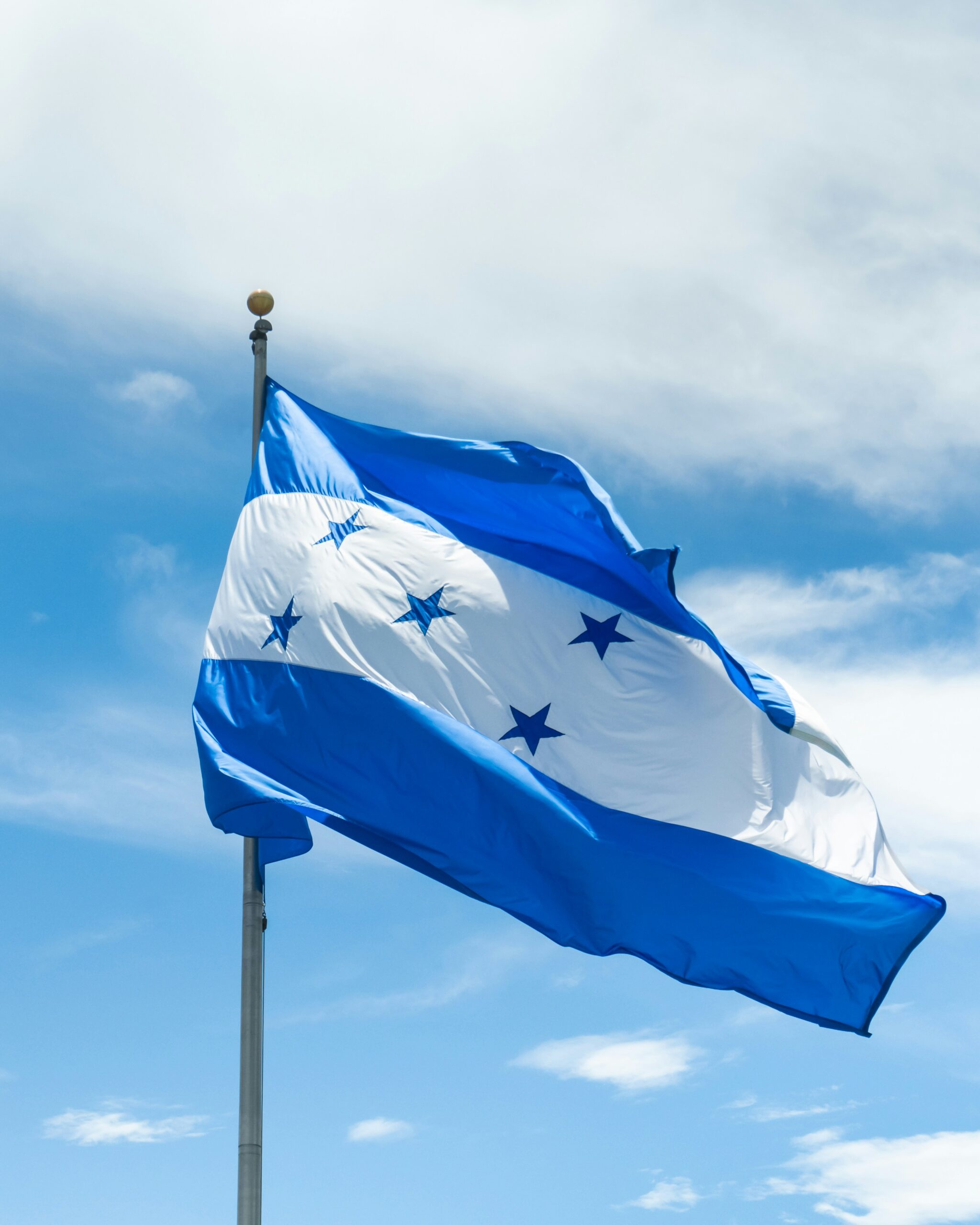What do world leaders need to know? Our “Memo to.” series has the answer with briefings on the world’s most pressing issues from our experts, drawing on their experience advising the highest levels of government. Bottom line up front: On November 30, 2025, Honduras will hold one-round general elections in which the candidate with the most votes wins the presidency. As things stand, neither the credibility of the process nor an undisputed result is guaranteed, and any outcome is likely to trigger a contested election-a déjà vu of 2017’s post-electoral crisis. This time, however, the election carries significant stakes for the United States: it could affect US-Honduras security cooperation, reshape geopolitical competition following Honduras’ 2023 pivot to China, and test President Xiomara Castro’s push to expand military involvement beyond constitutional limits, including subordinating the armed forces directly to the presidency rather than the electoral authority. The United States should step up its monitoring of this election because the instability it could trigger would reverberate well beyond Honduras. Background: An x-ray of Honduras Over six million Hondurans will head to the polls on Sunday, November 30, to elect a new president, 128 members of Congress, 298 mayors, and twenty representatives to the Central American Parliament. These are the broader domestic and geopolitical dynamics at play: Electoral context The general elections follow March’s chaotic primaries, during which logistical hurdles affected an estimated 1. 3 million voters in Tegucigalpa and San Pedro Sula, out of the 5. 8 million eligible voters nationwide. Many citizens had to cast their ballots the following day, and in some cases up to a week later, due to delays in opening polling centers or receiving voting materials. These disruptions triggered serious clashes within electoral institutions, including the National Electoral Council (CNE) and the Electoral Justice Tribunal, and between them and other public bodies such as the armed forces and the attorney general’s office These disputes ultimately delayed key steps in the electoral timeline, including the adjudication of the contract for the company that would transmit preliminary results (TREP) on election day. In the months since, operational gaps have widened. The CNE delayed contracting satellite connectivity for remote voting sites. Then, a logistics contractor withdrew in early November-just days before the vote-citing delayed contract awards and lack of guarantees for election-night performance. With only twenty-two days remaining, the CNE launched a “fast track” procurement to replace both the connectivity and logistics functions, compressing timelines that typically require months of testing and coordination. The Organization of American States, one of sixty-eight institutions set to observe the elections, has already deployed its mission and issued statements raising concerns about on-the-ground conditions for citizens to exercise their right to vote. The European Union (EU) was also invited to participate as an observer, with approximately 120 delegates stationed across the country. In total, there are roughly five hundred international observers on the ground. Worrisome, however, is that in a span of forty-eight hours, one of the national observing institutions quickly accredited over nine thousand additional delegates-many close to the ruling party. Altogether, logistical challenges; a shift toward an increased role of the military in the elections-including directly asking the transportation company for the location of the GPS devices that will be used on election day-; the attorney general’s harassment of electoral authorities; institutional tensions; and the “express” accreditation of local observers have undermined confidence in the vote. This has opened the door for results to be questioned, regardless of the outcome, putting Honduras’ democratic stability and key US interests at risk. Security in Honduras Violence and extortion remain pervasive in Honduras. The country has the highest homicide rate in Central America, with an estimated 25. 3 homicides per 100, 000 in 2024. To fight drug traffickers and gangs, the current administration has repeatedly declared a “state of exception” since 2022, following the model of neighboring El Salvador. The latest extension of the emergency declaration was on November 12, for an additional forty-five days. However, the impact of this measure is unclear, as homicide rates in municipalities have only slightly decreased-both in areas where the measure is in place and where it is not. Importantly, the country is a main node of cocaine transit toward the United States, and a former president, Juan Orlando Hernández, a central figure and ultimate winner of the contested 2017 election, is now serving a forty-five-year sentence for drug trafficking in the United States. In an important reversal, and less than a month after the inauguration of the second Donald Trump administration, Honduras renewed an extradition treaty with the United States, which was on the brink of expiration. The Castro government had threatened cancellation, framing US extradition pressure as interference and coup-plotting. The renewed treaty now extends through the end of Castro’s term, but post-election instability could again put it at risk if a power vacuum emerges in Tegucigalpa. US military presence The Soto Cano Air Base (previously known as Palmerola) in Honduras has been home to the US Southern Command’s Joint Task Force-Bravo since 1983 and was originally established as a strategic hub during the Cold War. Soto Cano is the main platform for US military presence in Central America and one of only two major bases in the broader region, the other being Guantánamo. The base has the capacity to rapidly deploy counter-transnational crime missions, humanitarian assistance, and disaster response-including the recent deployment of personnel and supplies to Jamaica following Hurricane Melissa. Because Soto Cano is an important regional operational hub for the US military, political stability in Honduras is key to ensuring that US missions and broader security efforts can continue without disruption. Migration cooperation Honduras closely cooperates with the United States on migration. As part of this effort, the Cooperation in the Examination of Protection Requests agreement was signed in Washington on March 10, 2025, and entered into force in June. It allows the United States to send certain non-Honduran migrants to Honduras to seek protection there, rather than on US soil. The arrangement builds off a 2019 asylum cooperative agreement signed under the first Trump administration, which allows the United States to send asylum seekers to Honduras. Political stability will influence Honduras’ ability to continue these agreements effectively and affect broader regional migration flows. Trade and investment between the US and Honduras As a founding partner of the Central America-Dominican Republic Free Trade Agreement (CAFTA-DR), Honduras is closely linked to US markets. Bilateral trade totaled almost $13 billion in 2024, with a surplus in favor of the United States of $2. 4 billion in 2024. Currently, more than two hundred US companies operate in the country, and foreign direct investment from the United States totaled $1. 4 billion in 2024. However, investors continue to face challenges including regulatory uncertainty, unpredictable tax enforcement, unreliable and expensive electricity, and poor infrastructure-a challenge shared across most Central American countries. Affronts to US investment in Honduras are not new, but have risen since the early days of the Castro administration, as exemplified by a bipartisan letter from Senator Bill Hagerty and then-Senator Ben Cardin in 2022, which raised the alarm bells. Legal uncertainty has increased under the current administration, following the Supreme Court’s September 2024 ruling declaring the 2013 creation of so-called Zones for Employment and Economic Development unconstitutional, raising concerns about the future of US investment in these zones. Just a month prior, in August 2024, Honduras exited the International Centre for Settlement of Investment Disputes (ICSID), a World Bank institution that provides specialized arbitration facilities to settle investment disputes. This means that, after the withdrawal, any private complaint against the state of Honduras is no longer subject to the ICSID’s jurisdiction, creating a big gap for US commercial interests. Since April, following the announcement of the Trump administration’s tariff strategy, Honduras has been subject to the baseline 10 percent reciprocal tariff. Unlike El Salvador and Guatemala, the country has not secured an Agreement on Reciprocal Trade, which could reduce tariffs if non-tariff barriers-such as restrictions on US agricultural products, intellectual property protections, and digital trade-are addressed. Honduras has not yet initiated negotiations toward such an outcome and has shown no indication that it will do so before the Castro administration leaves office. Ties with China In March 2023, Honduras broke diplomatic ties with Taiwan. Soon after, it launched foreign trade agreement negotiations with China, implementing an “early harvest” trade deal in September 2024. This switch intended to open more commercial opportunities for Honduran commodities and secure Chinese financing for strategic infrastructure projects. However, the move has not significantly benefited Honduran exporters, particularly since Honduras’ once-thriving shrimp industry is now in crisis due to smaller purchase volumes and lower prices from China. In 2024, Honduras’ trade deficit with China reached $2. 52 billion dollars. The country exported only $35. 9 million, while imports from China totaled $2. 55 billion. As of June, the deficit already stands at $1. 41 billion. While exports are expected to rise this year, they remain far from matching imports from China. Engagement with China has grown mainly in the energy sector, including Chinese participation in the Patuca II and III hydroelectric projects, and a letter of intent signed in May between Honduras’ Ministry of Energy and China’s Global Energy Interconnection Development and Cooperation Organization to advance technical cooperation and support additional Chinese energy investment in Honduras. This latest agreement appears to be a reactive or preemptive response from Beijing to make up for unmet expectations vis-à-vis Honduras. Candidates in the upcoming election have raised these perceptions, with only one of the three leading contenders indicating that she would maintain the course of Honduras-China relations going forward. Three takeaways: Why this election matters to the US A messy election aftermath could directly affect US security interests The chaotic primaries and the months after have exposed concerning institutional weaknesses: delays in procurement (from the technologies to transmit preliminary results and ensure wide connectivity across the country to the transport of ballots), technical inefficiencies, competing legal interpretations, and interference from other bodies, coupled with little willingness to compromise for the stability of the election process. These events, and the emerging narrative that the TREP is unreliable for technical reasons-potentially planting the seeds of manipulation-are driven by the incumbent LIBRE party and have undermined public confidence in the electoral system. Ultimately, it might even discourage Hondurans from voting on November 30. If citizens have little trust in the electoral apparatus, what mandate will the next president govern with? A post-vote power vacuum could risk the stalling of joint US-Honduras operations and extraditions-a top priority of the current US administration-and could see the emergence of narratives against the extradition treaty, which LIBRE threatened to end in August 2024. Shared US-Honduras economic priorities rely on electoral stability With more than two hundred US companies operating in Honduras across the apparel, food and beverage, and business process outsourcing sectors-all of which depend on consistent rules, the CAFTA-DR framework, and the assurance of arbitration against non-compliant governments-a stable Honduras is essential to protecting already vulnerable US investments. If the country were to experience civil unrest after November 30, US supply chains and investor confidence would face disruptions. Even a brief period of instability could push the country’s risk up considerably, with internal actors committed to short-to-medium-term chaos until the international attention moves on to other crises. The influence of nefarious actors in the region Regardless of political affiliation and views, all three candidates have reinforced the importance of the United States as a critical partner for Honduras. Both opposition candidates have explicitly pledged to revert recognition to Taipei. Extra-regional players, including China, might exploit the uncertainty to press for quick wins and expand their influence. The United States should also watch for growing Russian influence, especially after Russia announced in April that it would open a diplomatic office in Tegucigalpa to advance bilateral cooperation and allow more direct communication. Closer ties to these actors could shift from transparent, rules-based processes to opaque deal-making. Recommendations for US policy in the lead-up to the elections Issue pre-election statements underscoring that the United States is closely watching the upcoming election, emphasizing transparency in the tally, uninterrupted operation of the TREP, and full access for accredited observers. Reinforce messages of swift action-including sanctions and visa revocations-against those who seek to undermine the integrity of the process. Show unequivocal bipartisan unity to support democracy in Honduras and lead the international community in reminding the Honduran armed forces of their constitutional role in the electoral process: to protect the vote and remain neutral-without conducting a parallel or political vote. Track electoral logistics closely, including the scheduled 9: 00 pm announcement of preliminary results on November 30, which can be monitored by the US Embassy in Tegucigalpa in coordination with international observers. The EU Electoral Mission report, expected two days after the vote, will be important for determining next steps. Appoint, secure US congressional confirmation for, and send a US ambassador to Honduras before the next government takes office in January. Send a high-level US diplomatic delegation to Tegucigalpa for the inauguration, potentially including the secretary of state and secretary of war, to show that the United States is closely monitoring developments that could affect its national security interests. María Fernanda Bozmoski is director, impact and operations and Central America lead at the Adrienne Arsht Latin America Center at the Atlantic Council. Isabella Palacios is a program assistant at the Atlantic Council’s Adrienne Arsht Latin America Center. Jason Marczak is vice president and senior director at the Atlantic Council’s Adrienne Arsht Latin America Center.
https://www.atlanticcouncil.org/content-series/memo-to/the-secretary-of-state-in-the-upcoming-honduran-elections-democracy-and-us-interests-are-at-stake/
Memo to the Secretary of State: In the upcoming Honduran elections, democracy and US interests are at stake



